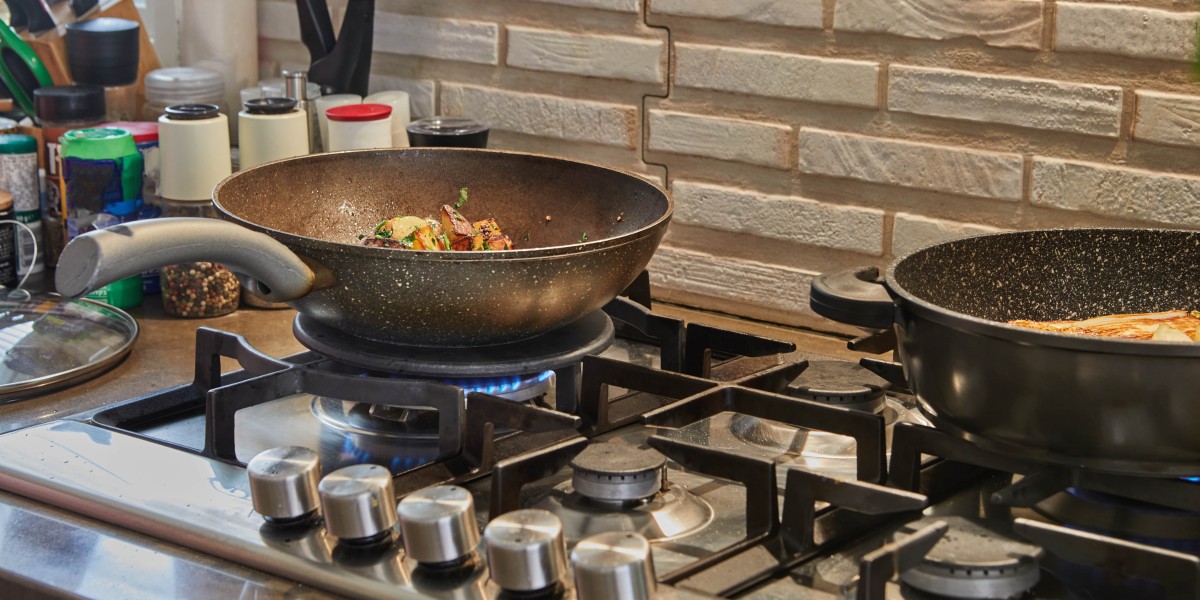The Integrated Cooker: A Comprehensive Guide to Modern Cooking Solutions
The advancement of kitchen appliances has actually revolutionized food preparation and cooking methods, making meal preparation more effective and satisfying. Among these developments, the integrated cooker stands out as a flexible and space-saving addition to modern kitchens. This post looks into the numerous aspects of integrated cookers, including types, advantages, features, and a comparison with traditional cooking approaches.
What is an Integrated Cooker?
An electric integrated oven cooker is a compact cooking home appliance that integrates numerous cooking functions into one system. Frequently buy built in oven into kitchen cabinetry, these cookers are designed to save space while enhancing kitchen aesthetics. They generally incorporate a variety of functionalities, such as baking, grilling, steaming, and even pressure cooking.
Secret Features of Integrated Cookers
- Multi-Functionality: Integrated cookers can perform various cooking jobs, eliminating the requirement for numerous appliances.
- Space-Saving Design: These cookers fit perfectly into kitchen systems, making them ideal for modern-day homes with minimal space.
- Advanced Technology: Many integrated cookers come geared up with wise technology, such as programmable settings, touch-screen controls, and 5 Functions connectivity choices.
- Energy Efficiency: Built with modern-day materials and style, they often take in less energy compared to conventional cooking techniques.
Types of Integrated Cookers
The market uses various types of integrated cookers, each with its distinct set of functions and functionalities. Here are the most common types:
| Type | Description | Example Use |
|---|---|---|
| built in electric oven and hob-in Ovens | Ovens that are fitted into wall units or cabinetry | Baking bread, roasting meats |
| Induction Hobs | Cooktops that use electromagnetic energy to heat pots and pans | Quickly boiling water, sautéing |
| Steam Ovens | Appliances that cook food utilizing steam for healthier results | Steaming vegetables, fish |
| Microwave Ovens | Integrated microwaves for quick heating and cooking | Reheating leftovers, making popcorn |
| Combination Ovens | A mix of standard and steam cooking innovations | Baking while guaranteeing moisture retention |
Advantages of Using Integrated Cookers
Integrated cookers offer a host of benefits over conventional cooking tools. Below are some of the crucial benefits:
- Space Efficiency: Ideal for compact kitchens, integrated cookers utilize vertical areas efficiently.
- Structured Cooking Process: With numerous functions readily available, users can shift from one cooking approach to another with minimal effort.
- Enhanced Aesthetics: Many integrated cookers been available in streamlined designs that mix well with contemporary kitchen design.
- Enhanced Cooking Control: Programmable functions permit for precise cooking, making sure better meal outcomes.
Integrated Cookers vs. Traditional Cooking Appliances
When considering meal preparation alternatives, it is important to weigh the benefits of integrated cookers against conventional cooking appliances. Below is a comparison chart:
| Feature | Integrated Cooker | Standard Appliances |
|---|---|---|
| Area Efficiency | High | Lower |
| Multi-Functionality | Yes | No (requires numerous appliances) |
| Energy Consumption | Frequently lower | Can be greater |
| Cooking Speed | Faster (especially with induction) | Varies |
| Style | Modern and streamlined | Differs commonly |
The integrated cooker is a forward-thinking device that fulfills the needs these days's hectic way of life. Its multiplicity of functions, space-saving style, and sleek aesthetics make it a worthwhile investment for any modern-day kitchen.
For those looking to save time, area, and effort in meal preparation, integrated cookers offer an excellent solution that boosts the cooking experience while delivering tasty, well-prepared meals.
Regularly Asked Questions (FAQs)
1. What is the average rate of an integrated cooker?
The cost of integrated cookers can differ extensively, usually ranging from ₤ 500 to ₤ 3,000 depending on features, brand name, and size.
2. How much maintenance do integrated cookers need?
Maintenance frequently consists of routine cleansing of surface areas and checking for any software application updates if they feature clever technology. It's a good idea to follow the maker's standards.
3. Can I replace my existing oven with an integrated cooker?
Yes, integrated cookers can typically change standard ovens, however it is important to seek advice from a professional to ensure compatibility with your kitchen layout.
4. Are integrated cookers hard to install?
Installation can be simple for those with DIY experience. However, employing a qualified service technician is recommended to make sure correct setup.

5. Who benefits most from using an integrated cooker?
Families, time-pressed individuals, and those residing in compact apartment or condos particularly take advantage of the multi-functionality and space-saving style of integrated cookers.
In this age of convenience and effectiveness, integrated cookers are redefining how we approach cooking. Whether you are an experienced chef or Modern Kitchens a cooking novice, incorporating this powerful appliance into your kitchen can substantially boost your culinary experience.








